-
News2024 Diploma Presentation Ceremony
The 2024 Diploma Presentation Ceremony was held on 9 March 2025
-
Repertoire exams
The repertoire exam format is an exam option available for preliminary to Read more...
-
NewsPreparing for exam success
Choose the correct exam, avoiding additional fees and nasty surprises on Read more...
-
NewsAMEB Teaching Awards
2024 Teaching Award Honour Roll
-
NewsJade Park
Spotlight on AMEB alumni
AMEB provides a pathway for students to follow as they gain
- technical ability
- performance skills
- confidence
Students can choose their own focus of formal graded exams:
- Comprehensive exams
- For Leisure exams
- Repertoire only exams
- Rockschool exams
The AMEB pathway builds skills in a logical progression, but students are free to enter at any grade level, depending on their prior learning.
Students should always consult with their teacher to select the right grade and exam to undertake.
P Plate Piano
Young pianists in the very earliest stages of their training can sit for P Plate Piano. These assessments are non-graded. Students play a program of three pieces from one of the three P Plate Piano books. The examiner gives feedback on each piece in a written report.
P Plate assessments do not include:
- technical work
- aural tests
- sight reading
Students receive a certificate after the exam and a P Plate Piano Licence when they complete the the final book.
Grade exams
A choice of Comprehensive, For Leisure or Repertoire Exams
Comprehensive
Comprehensive grade exams give students a rounded music or speech and drama education. Comprehensive grade exams are the best path toward:
- higher level studies
- teaching opportunities
- formal recognition of AMEB studies in Australia or overseas
Music students must demonstrate a holistic and comprehensive musical understanding to progress. Success requires students to demonstrate a broad range of skills including:
- technique
- performance
- listening and aural awareness
- sight reading
- general knowledge
Comprehensive Grade Exams run from preliminary to grade 8. Students can cap off their studies with the AMEB Certificate of Performance.
Students undertaking Comprehensive Grade 6 or above exams, must also pass a written exam in theory, musicianship or music craft. Once both practical and written exams have been passed, a certificate will be issued.
Speech and Drama students discuss the works they have performed to demonstrate knowledge of:
- theatre history
- phonetics
- vocal knowledge
- communication skills
Comprehensive Grade Exams run from preliminary to grade 8. Students can cap off their studies with the AMEB Certificate in Voice and Communication or Certificate of Speech and Performance.
For Leisure
Students taking For Leisure exams prepare a shorter program of works. Students learn while enjoying a varied repertoire of classical, pop, jazz and theme music from movies.
Technical work and general knowledge are still examined. Students may choose to present either aural skills or sight reading. Written theory exams are not required.
For Leisure syllabuses are available for:
- piano
- saxophone
- singing
For Leisure exams run from preliminary to grade 8. Students can cap off their studies with the AMEB Certificate of Performance .
Repertoire
The Repertoire exam format focuses on performance and is ideal for students with limited preparation time. Students play a program of pieces and receive expert feedback on their repertoire.
Technical work, aural, sight reading and general knowledge are not examined.
Repertoire exams are offered from Preliminary to Grade 8.
Repertoire exams are available for all instruments and subjects excluding Rockschool.
Students undertaking Repertoire Grade 6 or above exams, must also pass a written exam in theory, musicianship or music craft. Once both practical and written exams have been passed, a certificate will be issued.
AMEB Certificate - Performance or Teacher
Certificate exams bridge the standard expected at Grade 8 and diploma level.
It is recommended, but not a requirement, for:
- Students looking to undertake a diploma exam
- Students looking to cap off their AMEB grade achievement
There are five certificates available:
- For musicians: Certificate of Performance
- For music teachers: Certificate of Teacher (CTMusA)
- For speech and drama students: Certificate of Voice and Communication or Certificate of Speech and Performance
- For speech and drama teachers: Certificate of Performance
Students will communicate expressive ideas and musical understanding in this exam through a longer program of pieces. They also gain the performance experience needed to prepare for diploma exams.
Diploma Exams
For musicians, the prestigious:
- Associate Diploma (AMusA) and
- Licentiate Diploma (LMusA)
recognise attainment of:
- sophisticated musical understanding and
- exceptional performance ability
well above grade examination requirements. Both qualifications are highly respected in the international music community.
AMusA and LMusA students must also undertake relevant written theory requirements to receive their diploma.
For speech and drama students, the prestigious
- Associate Diploma (the ADPA, ASPA or the APCA) and
- Licentiate Diploma (LDPA or LSPA)
are awarded to students who show:
- maturity
- conviction
- confidence
in presentation and performance. This includes the ability to use advanced technical and vocal skills. Students can focus their studies toward a qualification as a performer or a teacher.
AMEB (NSW) invites all successful diploma students to the annual AMEB (NSW) Diploma Presentation Ceremony. The ceremony formally recognises an artist’s years of dedication. It also gives students an opportunity to share their achievement with peers, teachers, family and friends.








